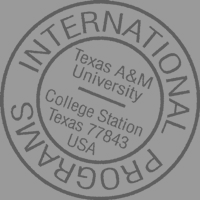"We don't see things as they are, we see things as we are" - Anais Nin, Author & Diarist (1903-1977)
In the video The Alamo, Michael Ray comments that the story of the Alamo has been told often in the movies, different interpretations with each generation. He notes that few facts in our history have ever been carved in stone and that much of our past lies buried in the cobwebs of mystery and legends with no fixed points and few absolutes. Historical research and the development of digital documentaries provide students with an opportunity discover new stories and challenge Hollywood interpretations. Watch The Alamo http://www.digitalhistory.uh.edu/digital_stories.cfm and enjoy exploring the Internet links to digital history sites. Using primary source materials in research makes history come alive!
Digital History Internet Sites
Digital History: Using New Technologies to Enhance Teaching and Research: http://www.digitalhistory.uh.edu/
An extensive web project by John and Rebecca Moores, Professor of History & Steven Mintz in combination with John Lienhard, M.D. Anderson Professor of Mechanical Engineering and Sara McNeil, Associate Professor of Curriculum and Instruction from the University of Houston. It is designed to engage students in more forms of media and actively immerse them in the learning process. This website is a large compilation of multiple historical tools, documents, links and multimedia of American History. The section titled Digital Stories about American History includes many examples of short documentary videos. http://www.digitalhistory.uh.edu/digital_stories.cfm
Digital History: A Guide to Gathering, Preserving, and Presenting the past on the Web by Daniel Cohen & Roy Rosenzweig
On-line version of text available: http://chnm.gmu.edu/digitalhistory/index.php
Digital History: http://digitalhistory.unl.edu/
Digital history is an emerging and rapidly changing academic field. The purpose of this site is to educate scholars and the public about the state of the discipline by providing access to:
- Presentations about the field by noted scholars
- Interviews with scholars about topics related to digital history
- Information about many aspects of digital history, including reviews of major online projects and reviews of tools which may be of use to digital historians
- A clearinghouse of current events and news items of interest
- A selected bibliography of Digital History resources
The site is made available through the support of the John and Catherine Angle Fund and received production assistance from the New Media Center at the University of Nebraska-Lincoln.
Edsitement: http://edsitement.neh.gov/
Humanities on the Web from the National Endowment for the Humanities and the Verizon Foundation. This educational partnership brings online humanities resources from some of the world's great museums, libraries, cultural institutions, and universities directly to your classroom.
Doing History: http://dohistory.org/
Doing History is a creative historical experience built around Laurel Thatcher Ulrich's work on Martha Ballard, an American midwife from the Northeast.
The site demonstrates how to piece together the past from the fragments that have survived based on a case study: Martha Ballard. The site also includes a section called On Your Own that provides a History Tool Kit and links to good resources. http://dohistory.org/on_your_own/index.html
The National Archives: http://www.archives.gov/
The National Archives is a repository of our national history. Watch the video, Democracy Starts Here located on the National Archives home page. Look at lesson plans for teaching with primary source documents at: http://www.archives.gov/education/lessons/
The National Archives Video Section: NASA History of Space Flight, News Reels, Department of the Interior
http://video.google.com/nara.html
Archival Research Catalog: Guide for Genealogists and Family Historians
http://www.archives.gov/research/arc/topics/genealogy/
ARC does contain digital copies of selected documents. We have over 128,000 digital copies in ARC, and that number will continue to grow although it is far from all the documents held by the National Archives.
Library of Congress: American Memory: Historical Collections from the Library of Congress. View historical images, maps, sound recordings, manuscripts, motion pictures
http://lcweb2.loc.gov/ammem/browse/
The Internet Archive: The Internet Archive is a non-profit that was founded to build an Internet library, with the purpose of offering permanent access for researchers, historians, and scholars to historical collections that exist in digital format. http://www.archive.org/index.php
Prelinger Archives (Internet Archives) http://www.archive.org/details/prelinger
Moving Image Archive (Internet Archives) http://www.archive.org/details/movies
Primary Access: A web-based tool that offers teachers and students frictionless access to digital images and materials that enable them to construct compelling personal narratives. Primary Access is being developed as an initiative within the Center for Technology & Teacher Education in the Curry School of Education at the University of Virginia. http://www.primaryaccess.org/ Also see Digital Storyteller: http://www.digitalstoryteller.org/ To open a free account, go to Teachers Tools: http://www.primaryaccess.org/guide/TeacherTools.htm
